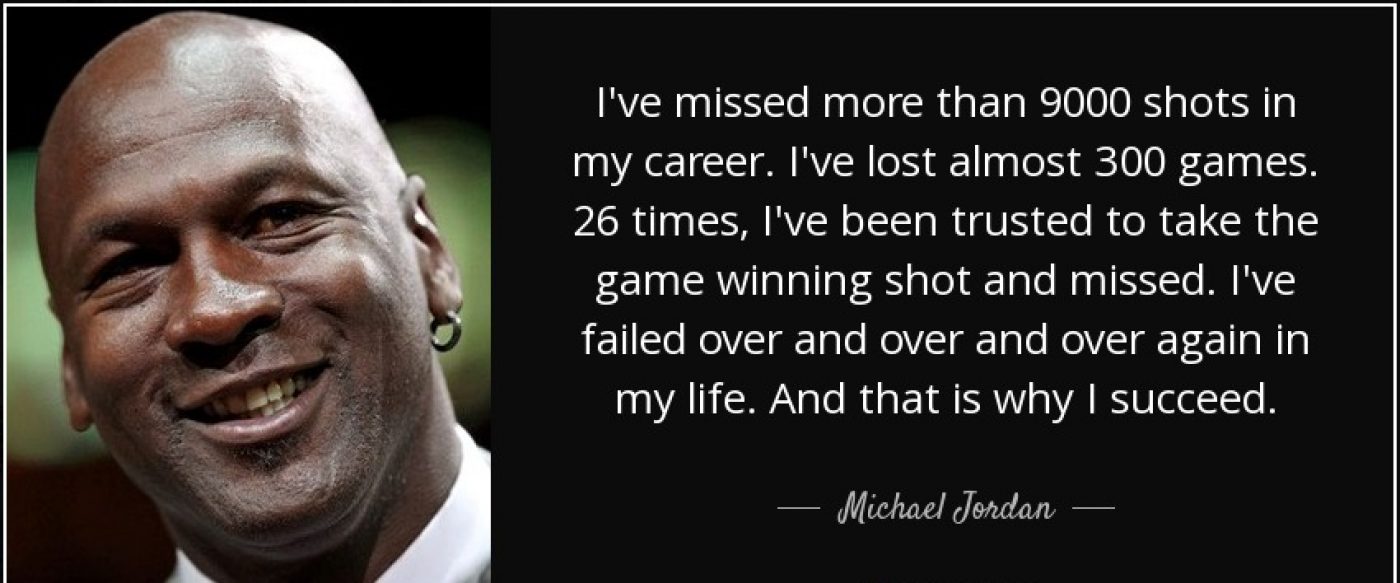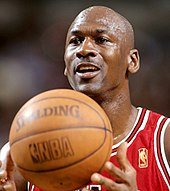Legacy
Jordan’s marked talent was clear from his rookie season. In his first game in Madison Square Garden against the New York Knicks, Jordan received a prolonged standing ovation, a rarity for an opposing player. After Jordan scored a playoff record 63 points against the Boston Celtics on April 20, 1986, Celtics star Larry Bird described him as “God disguised as Michael Jordan.”
Jordan led the NBA in scoring in 10 seasons (NBA record) and tied Wilt Chamberlain‘s record of seven consecutive scoring titles.He was also a fixture on the NBA All-Defensive First Team, making the roster nine times (NBA record shared with Gary Payton, Kevin Garnett and Kobe Bryant). Jordan also holds the top career regular season and playoff scoring averages of 30.1 and 33.4 points per game,respectively. By 1998, the season of his Finals-winning shot against the Jazz, he was well known throughout the league as a clutch performer. In the regular season, Jordan was the Bulls’ primary threat in the final seconds of a close game and in the playoffs, Jordan would always demand the ball at crunch time. Jordan’s total of 5,987 points in the playoffs is the highest in NBA history.He retired with 32,292 points in regular season play, placing him fourth on the NBA’s all-time scoring list behind Kareem Abdul-Jabbar, Karl Malone, and Kobe Bryant.
With five regular-season MVPs (tied for second place with Bill Russell; only Kareem Abdul-Jabbar has won more, six), six Finals MVPs (NBA record), and three All-Star MVPs, Jordan is the most decorated player ever to play in the NBA. Jordan finished among the top three in regular-season MVP voting a record 10 times, and was named one of the 50 Greatest Players in NBA History in 1996. He is one of only seven players in history to win an NCAA championship, an NBA championship, and an Olympic gold medal (doing so twice with the 1984 and 1992 U.S. men’s basketball teams).
“There’s Michael Jordan and then there is the rest of us.”
Many of Jordan’s contemporaries say that Jordan is the greatest basketball player of all time. In 1999, an ESPN survey of journalists, athletes and other sports figures ranked Jordan the greatest North American athlete of the 20th century, above such luminaries as Babe Ruth and Muhammad Ali. Jordan placed second to Babe Ruth in the Associated Press‘s December 1999 list of 20th century athletes. In addition, the Associated Press voted him as the basketball player of the 20th century. Jordan has also appeared on the front cover of Sports Illustrated a record 50 times. In the September 1996 issue of Sport, which was the publication’s 50th anniversary issue, Jordan was named the greatest athlete of the past 50 years.
Jordan’s athletic leaping ability, highlighted in his back-to-back slam dunk contest championships in 1987 and 1988, is credited by many with having influenced a generation of young players. Several current NBA All-Stars have stated that they considered Jordan their role model while growing up, including LeBron James and Dwyane Wade. In addition, commentators have dubbed a number of next-generation players “the next Michael Jordan” upon their entry to the NBA, including Anfernee “Penny” Hardaway, Grant Hill, Allen Iverson, Kobe Bryant, LeBron James, Vince Carter, and Dwyane Wade. Although Jordan was a well-rounded player, his “Air Jordan” image is also often credited with inadvertently decreasing the jump shooting skills, defense, and fundamentals of young players, a fact Jordan himself has lamented.
I think it was the exposure of Michael Jordan; the marketing of Michael Jordan. Everything was marketed towards the things that people wanted to see, which was scoring and dunking. That Michael Jordan still played defense and an all-around game, but it was never really publicized.
Although Jordan has done much to increase the status of the game, some of his impact on the game’s popularity in America appears to be fleeting. Television ratings in particular increased only during his time in the league, and Finals ratings have not returned to the level reached during his last championship-winning season.
In August 2009, the Basketball Hall of Fame in Springfield, Massachusetts, opened a Michael Jordan exhibit containing items from his college and NBA careers, as well as from the 1992 “Dream Team”. The exhibit also has a batting glove to signify Jordan’s short career in baseball. After Jordan received word of his being accepted into the Hall of Fame, he selected Class of 1996 member David Thompson to present him. As Jordan would later explain during his induction speech in September 2009, growing up in North Carolina, he was not a fan of the Tar Heels, and greatly admired Thompson, who played at rival North Carolina State. He was inducted into the Hall in September, with several former Bulls teammates in attendance, including Scottie Pippen, Dennis Rodman, Charles Oakley, Ron Harper, Steve Kerr, and Toni Kukoč. Former coaches of Jordan’s, Dean Smith and Doug Collins, were also among those present. His emotional reaction during his speech, when he began to cry, was captured by Associated Press photographer Stephan Savoia and would later become widely shared on social media as the Crying Jordan Internet meme

